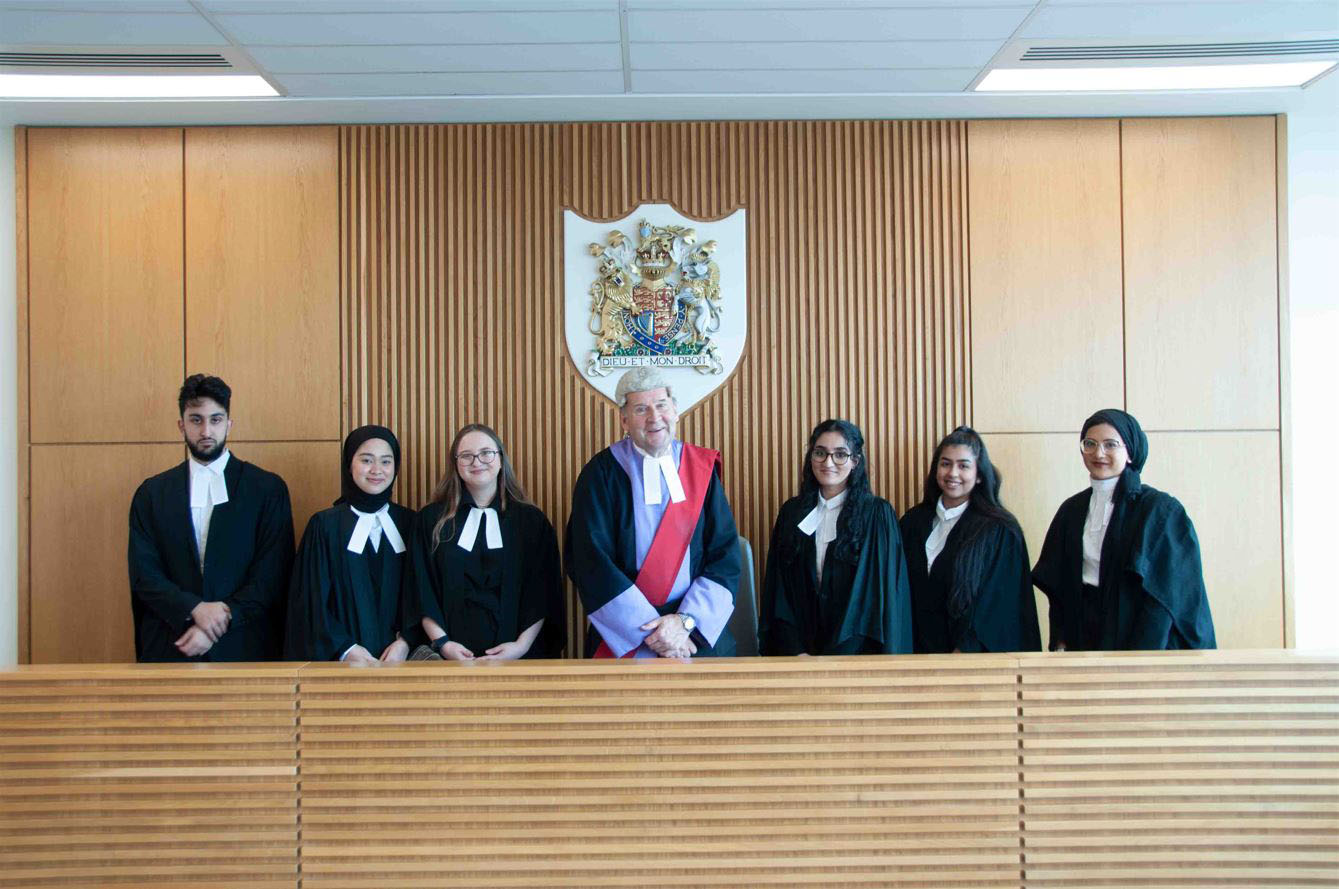
Peace, justice and strong institutions 2024
Action for Students
The University of Huddersfield recognises the Huddersfield Students’ Union as representative of our students. Elected representation from the Student Union is engaged in the operation of the University, including in the highest levels of governance.
Operations
The University of Huddersfield is, itself, a strong institution. There is elected representation from the Student Union, and from faculty, and staff (non-faculty employees) at the highest levels in the University, on the University Senate, and the University Council has representation from amongst these elected student, faculty and staff members.
The University has an Anti-Bribery, Corruption and Fraud policy, which it publishes on its website.
The University publishes its Annual Report and Accounts, maintaining full financial transparency.
Public and Business Engagement
In involving representatives of local organisations, businesses and other interests, the University has established policies and structures. The University has an overarching Knowledge Exchange Strategy, which incorporates all aspects of public engagement. A key part of this process is the adoption of the Watermark standard from the National Coordinating Centre for Public Engagement; the University of Huddersfield received a Bronze award in 2021. As part of this approach, the University is creating a Civic University Agreement, identifying key local stakeholder groups for engagement, starting with the local authority, Kirklees Council. Academic Schools engage with relevant communities through stakeholder boards and similar functions, for example in the Huddersfield Business School, engaging with the regional and wider business community, and the School of Human and Health Sciences with its extensive work with local clients and service users.
The University has a range of participatory bodies to engage aspects of the local stakeholder community. For example, the Huddersfield Business School has an Advisory Board which exists to strengthen links with industry and the professions. In the Law School, there is an innovative 'Partners in Law' scheme which involves major local and regional law firms in the development of the School. In the School of Human and Health Sciences, client & patient voices are systematically brought into the work of the School via Patient and Client Engagement.
The University was a major influence in the establishment of the West Yorkshire Place-Based Economic Recovery Network during 2020. This multi-university network was created with the West Yorkshire Combined Authority and its five local authority members to support and build capacity for evidence-based policymaking, policy internships, training, and wider knowledge exchange. Through the network, University of Huddersfield academics provide advice to the West Yorkshire Mayoral Combined Authority. The Huddersfield-led work of this operation is recognised in the West Yorkshire Economic Recovery Plan, which has key goals of inclusive growth and a sustainable environment.
The University has a strong record of providing upskilling and capacity-building to policy and lawmakers on relevant topics including economics, law, technology, and climate change. Members of University staff participated in the work which led to the formation of the Kirklees Climate Commission, which is now hosted by the University on its campus in Huddersfield. The Commission is an independent advisory body to bring actors from the public, private and third sectors together to support and guide ambitious climate actions across all parts of the local district, Kirklees. The Commission is supporting Kirklees as it works towards net zero carbon emissions and greater climate resilience so that it can be a happier, healthier, more prosperous and more inclusive place.
The University provides a neutral platform and ‘safe’ space for different political stakeholders to come together to frankly discuss challenges, for example through a series of ‘Harold Wilson’ lectures, named in memory of the Huddersfield-born UK Prime Minister and jointly sponsored with the Diocese of Huddersfield. These allow a range of mainly political figures to discuss their ideas with a wide audience. Further the University has a tradition of welcoming political figures to open lectures and seminars, in which ideas can be explored.

Learning And Students
The University of Huddersfield has a clearly stated position supporting freedom of speech and academic freedom, laid out in its Freedom of Speech and External Speakers Policy (v2, revised July 2020). As stated in the opening words of the Policy, ‘The University of Huddersfield is committed to promoting the principles of freedom of speech and academic freedom so far as that is reasonably practical within the law.’ At 3.2 the policy affirms that ‘Every individual has a duty to ensure that freedom of speech is protected on University premises, including in lectures, tutorials, research and other activities.’
The University produces a significant number of graduates whose skills and experience ready them for work in relevant areas.
There were 335 graduates in law and enforcement-related courses from the University in 2022/23, 6% of the whole graduating cohort.
Research
The University of Huddersfield has a wide range of expertise through which it contributes locally, nationally and internationally in areas relevant to SDG16. For example, Prof. Paul Thomas of the Huddersfield Centre for Research in Education and Society undertakes research which focuses mainly on state policies around young people and multiculturalism, racism, community cohesion, and the prevention of extremism, and particularly on how ground-level policy-makers and practitioners mediate and enact such state policy agendas. Prof. Thomas provided advice on early reporting of terrorist threats which directly influenced counter-terrorism policing strategy in 2020. The University undertakes policy-focused research in collaboration with government departments, for example contributing to the report for the UK Government's Department for Culture, Media and Sport entitled 'Up next - the government’s vision for the broadcasting sector' presented to parliament in April 2022. The University was also involved, for the Welsh Government, in producing the research report 'Making Votes-at-16 Work in Wales: Lessons for the Future', in November 2021.